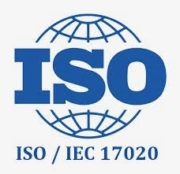In today’s competitive business environment, obtaining ISO certification is more than a badge of honor—it’s a strategic move that can enhance credibility, streamline operations, and open doors to new markets. However, understanding the costs associated with ISO certification in 2025 is crucial for effective budgeting and planning.
This article delves into the various factors influencing ISO certification cost, provides a breakdown of expenses, and offers insights specific to businesses operating in Egypt.
Understanding ISO Certification
ISO (International Organization for Standardization) certifications are globally recognized standards that ensure products, services, and systems meet quality, safety, and efficiency benchmarks. Common ISO certifications include:
Each certification caters to specific organizational needs and industries, and the costs can vary accordingly.
Factors Influencing ISO Certification Costs
Several variables impact the overall cost of obtaining ISO certification:
1. Type of ISO Standard
Different ISO standards have varying complexities. For instance, ISO 27001, focusing on information security, often requires more extensive controls and documentation compared to ISO 9001, which centers on quality management.
2. Organization Size and Complexity
Larger organizations or those with multiple sites and complex processes typically incur higher costs due to the increased scope of audits and implementation efforts.
3. Current Compliance Level
Organizations already aligned with certain quality or management standards may find the certification process less costly, as fewer changes are needed.
4. Consultancy and Training Needs
Engaging consultants for guidance or enrolling staff in training programs adds to the overall expenditure but can streamline the certification process and ensure compliance.
5. Certification Body Selection
Different certification bodies offer varying pricing structures. It’s essential to choose an accredited body that balances cost with credibility.
Breakdown of ISO Certification Costs
Understanding the components of ISO certification costs can aid in effective budgeting:
1. Preparation and Implementation
Estimated Cost: Varies widely based on organization size and complexity; for small businesses, this can range from $5,000 to $15,000.
2. Certification Audit
Estimated Cost: Audit fees can range from $1,500 to $3,000 per day, with total costs between $5,000 and $10,000 for small to medium-sized enterprises.
3. Post-Certification Maintenance
Estimated Cost: Annual surveillance audits may cost between $2,000 and $5,000.
ISO Certification Costs in Egypt
For businesses operating in Egypt, specific cost considerations apply:
Tips to Optimize ISO Certification Costs
Conclusion
ISO certification in 2025 remains a valuable investment for organizations aiming to enhance quality, efficiency, and marketability. While costs can vary based on multiple factors, understanding these elements allows for better planning and resource allocation. For businesses in Egypt, leveraging local expertise and resources can further optimize the certification journey.
Learn More:
FAQs
Q1: How long does the ISO certification process take?
A1: The duration varies based on the organization’s size and readiness but typically ranges from 3 to 6 months.
Q2: Is ISO certification mandatory?
A2: ISO certification is voluntary but can be a requirement for certain contracts or industries.
Q3: Can small businesses afford ISO certification?
A3: Yes, small businesses can afford ISO certification, especially with careful planning and budgeting. Many certification bodies offer scalable solutions that are more cost-effective for smaller organizations. Additionally, the benefits, such as improved quality, customer satisfaction, and access to new markets, often outweigh the initial costs. Many small businesses can also take advantage of local consultancy services to keep expenses lower.
Q4: What are the main benefits of ISO certification for my business?
A4: ISO certification offers numerous advantages, including enhanced brand reputation, improved operational efficiency, better customer satisfaction, access to new business opportunities, and a clear competitive edge. Moreover, it ensures compliance with industry standards and regulations, which can help avoid penalties or legal challenges.
Q5: How often do I need to renew ISO certification?
A5: ISO certification generally needs to be renewed every three years. However, businesses must undergo surveillance audits annually to ensure ongoing compliance with ISO standards. The recertification process involves a full audit to verify that the organization’s systems and processes still meet the ISO standards.
Q6: Can ISO certification help my business enter global markets?
A6: Yes, ISO certification can open doors to international markets. Many global companies and governments require their suppliers to meet specific ISO standards. ISO certification is recognized worldwide, providing assurance to potential international clients about the quality, safety, and efficiency of your products or services. It is especially beneficial in industries like manufacturing, food production, information technology, and healthcare.
Final Thoughts on ISO Certification Costs
In 2025, businesses looking to achieve ISO certification need to be prepared for the investment of time, effort, and resources. The process involves not only financial costs but also a commitment to aligning your operations with globally recognized standards.
Whether your goal is to improve internal processes, enhance customer satisfaction, or expand into new markets, ISO certification remains a valuable asset for businesses of all sizes.
By understanding the various cost factors and optimizing your approach, you can streamline the certification process and ensure a successful outcome without unnecessary financial strain.
Moreover, the long-term benefits of certification—such as enhanced credibility, better risk management, and more efficient operations—far outweigh the initial costs.
As the business landscape continues to evolve, ISO certification will remain an essential tool for companies aiming to stay competitive, compliant, and forward-thinking in an increasingly globalized world.















